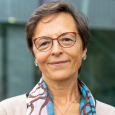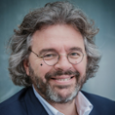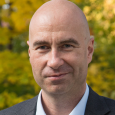Provisional Schedule
|
Hour |
Tuesday |
Hour |
Wednesday |
Hour |
Thursday |
Hour |
Friday |
|
|
|
08:30-10:00 |
Reception |
|
|
|
|
|
|
|
09:00-10:15 |
Oral Communications 1
Oral Communications 2 |
09:00-10:00 |
PLENARY CONFERENCE
(NICOLAS ROHLEDER) |
09:00-10:30 |
Simposium 9
Simposium 10 |
|
|
|
10:15-11:45 |
Simposium 1
Simposium 2 |
10:00-11:30 |
Simposium 5
Simposium 6 |
10:30-12:00 |
Simposium 11
Simposium 12 |
|
|
|
11:45-12:15 |
Coffee-break |
11:30 -12:00 |
Coffee-break |
12:00-12:30 |
Coffee-break |
|
|
|
12:15-13:00 |
OPENING CEREMONY |
12:00-13:00 |
PLENARY CONFERENCE
(CARMEN SANDI) |
12:30-13:30 |
CLOSING CONFERENCE
(PHILIPPE COURTET) |
|
|
|
13:00-14:00 |
INAUGURAL CONFERENCE
(ÁLVARO PASCUAL-LEONE) |
13:00-14:15 |
Oral Communications 6
Oral Communications 7
Oral Communications 8 |
13:30-14:00 |
CLOSING CEREMOY |
|
|
|
14:00-16:00 |
WELCOME COCKTAIL
(Palacio Exposición) |
14:15-16:00 |
BREAK |
|
16:00 - 20:00 |
Reception |
16:00-17:30 |
Simposium 3
Simposium 4 |
16:00-17:30 |
Simposium 7
Simposium 8 |
|
16:00 - 17:50 |
Workshops
I y II |
17:30-18:15 |
COFFEE-BREAK
POSTERS 1 |
17:30-18:15 |
COFFEE-BREAK
POSTERS 2 |
|
18:00 - 19:50 |
Workshop III |
18:15-19:30 |
Oral Communications 3
Oral Communications 4
Oral Communications 5 |
18:15-19:30 |
Short Communications 1
Short Communications 2
|
|
19:30-20:00 |
GUIDED VISIT |
19:00-19:45 |
ASAMBLY SOCIETY |
|
|
|
21:30 |
UNIVERSITY RECEPTION |
21:30 |
|
Plenary lectures
 Promoting resilience and brain health across the lifespan
Promoting resilience and brain health across the lifespan
Dr. ÁLVARO PASCUAL LEONE
Harvard Medical School (EEUU)
 Brain mitochondria and metabolism at the core of anxiety and related behaviors
Brain mitochondria and metabolism at the core of anxiety and related behaviors
Dra. CARMEN SANDI
École Polythecnique Fédérale de Lausanne (SWITZERLAND)
 Del estrés social al dolor psicologico en las conductas suicidas
Del estrés social al dolor psicologico en las conductas suicidas
Dr. PHILIPPE COURTET
University of Montpellier - Hôpital Lapeyronie (FRANCE)
 Stress Pathways to Disease
Stress Pathways to Disease
Dr. NICOLAS ROHLEDER
Friedrich-Alexander University Erlangen-Nürnberg (GERMANY)
Oral Communications Sessions
Oral Communications are distributed in 8 sessions that will take place on Wednesday, July 20 and Thursday, July 21, according to the established schedule and topic:
Oral Communication 1: Cognition and emotion + Neuroplasticity and cognitive enhancement
Oral Communication 2: Psychopharmacology & addiction
Oral Communication 3: Brain electrical correlates and neuromodulation
Oral Communication 4: Psychoendocrinology & Psychoimmunology + Social isolation, loneliness and stress
Oral Communication 5: Neuropsychology
Oral Communication 6: Learning and memory + Neuropsychology
Oral Communication 7: Psychophysiology + Developmental Psychobiology
Oral Communication 8: Sex/Gender in Psychobiological Research + others
Short Communications Sessions
The short communications are distributed in two parallel sessions, which will take place on Thursday, July 21 from 18:15 to 19:30 hr.
Each SHORT COMMUNICATION will be presented according to its topic:
SESSION 1
Learning and Memory
- Models, methods and techniques in Psychobiology
- Developmental Psychobiology
- Motivation: mechanisms of déficit and reward
- Ehtology and Comparative psychology
- Psychopharmacology & Addiction
SESSION 2
- Neuropsychology
- Neuroplasticity and cognitive enhancement
- Psychophysiology
- Cognitiona and Emotion
- Ageing and dementia
- Others
Poster sessions
oster presentations will be distributed in two sessions where each poster will be placed in the assigned panels according to its topic.
SESSION 1 (WEDNESDAY, JULY 20):
- Neuropsychology
- Ageing and Dementia
- Brain Electrical Correlates and Neuromodulation
- Developmental Psychobiology
- Learning and Memory
- Cognition and Emotion
- Ethology
SESSION 2 (THURSDAY, JULY 21):
- Psychopharmacology & Addiction
- Motivation: Mechanisms of Deficit and Reward
- Psychophysiology
- Social Isolation, Loneliness and Stress
- Sex/Gender in the Psychobiological Research
- Psychoendocrinology and Psychoimmunology
- Others
Each session will proceed as follows:
Poster authors can hang up their posters at conference venue 8:30 am and 9:00 am. Posters will be removed from 19:30 hr. Presenting authors should be during the Poster Session from 17:30h to 18:15h.
Monographic sessions/workshops for young researchers. - See more
The Young Researchers Committee will organise 2 sessions especially aimed at young researchers. They will deal with aspects of special interest to this group.
 Promoting resilience and brain health across the lifespan
Promoting resilience and brain health across the lifespan Brain mitochondria and metabolism at the core of anxiety and related behaviors
Brain mitochondria and metabolism at the core of anxiety and related behaviors Del estrés social al dolor psicologico en las conductas suicidas
Del estrés social al dolor psicologico en las conductas suicidas Stress Pathways to Disease
Stress Pathways to Disease